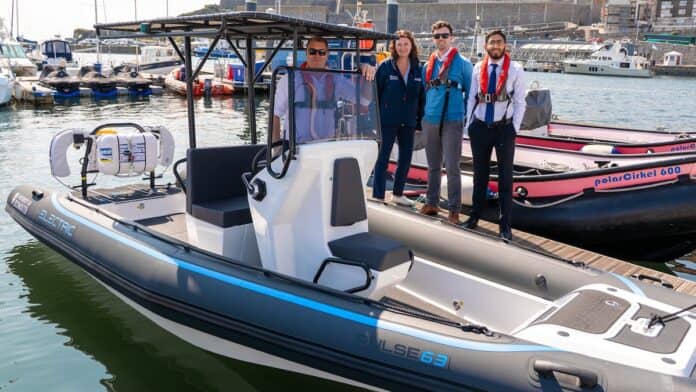Aqua superPower has demonstrated its new bidirectional charging technology, debuting the company’s Virtual Bunkering for Electric Vessels (VBEV).
The project is aimed at enabling electric boats to charge, while also allowing boat owners to discharge their batteries and return surplus energy to the grid when the boats are not in use.
The company points out that the vessel-to-grid project also focusses on making vessel-to-grid technology affordable and efficient for maritime infrastructure managers.
“The technology, which mirrors systems used in the automotive sector, is now adapted for the maritime industry via VBEV, positioning the marine sector at the forefront of green innovation,” explained Adam Marshall, chief technology officer of Aqua superPower.
“Today’s demonstration, in front of key industry stakeholders, represents a monumental step forward for Aqua superPower, our partners and the UK’s progress toward a greener future.”
This technology lays the foundation for the widespread adoption of zero-emission boats.
Alex Newton-Southon
The project, which is led by Aqua superPower is also being run in collaboration with energy company EDF, software company Fuuse, research company CENEX, the University of Plymouth, City College Plymouth, and electric vessel manufacturer RS Electric Boats.
The demonstration used the electric RS Pulse 63 RIB.
Aqua superPower points out that the new technology has enabled it to deploy commercially viable vessel-backed EV charging in partnership with other OEMs.
Early research findings into battery degredation from the University of Plymouth suggest the technology, when properly configured, could enhance battery health.
“This technology lays the foundation for the widespread adoption of zero-emission boats, proving that they are a viable, environmentally sustainable choice for the marine industry,” said Alex Newton-Southon, MD of RS Electric Boats.
“RS Electric Boats is proud to be part of the VBEV project, and to see years of hard work and innovation come to life in a way that benefits both the sector and the planet.”
The VBEV Project is funded by UK Government through the UK Shipping Office for Reducing Emissions (UK SHORE) programme in the Department for Transport.




